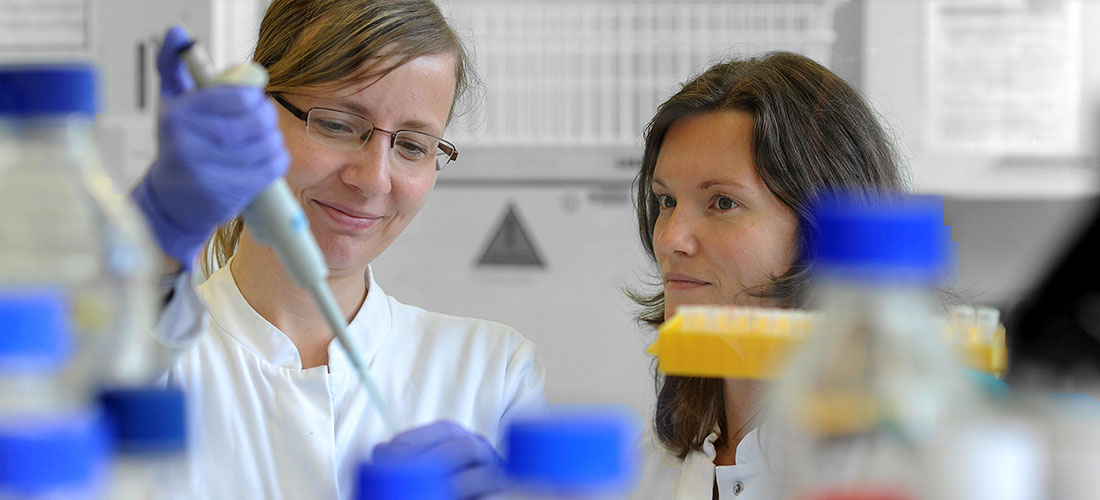B02: Targeting MYCN-dependent resolution of transcription-replication conflicts
MYCN amplification, which in most patients occurs on ecDNA in tumor cells, is the driving mutation in a subset of high-risk neuroblastoma cases. Since the MYCN protein cannot currently be directly target using small molecules, various approaches are being tested to indirectly target its function. We previously showed that a critical function of MYCN is to resolve transcription-replication conflicts that are common during S phase in proliferating cells. Disrupting this MYCN function leads to a dramatic increase in transcription-replication conflicts and tumor cell-specific DNA damage that can be therapeutically exploited. Our preliminary work indicates that the MYCN-AURKA-CDK12 axis may be central to the proliferative function of MYCN in neuroblastoma cells. A goal in B02 is to investigate the therapeutic opportunities that arise from it. We hypothesize that like AURKA inhibitors, specific CDK12 inhibitors, which are in late-preclinical development, form synergistic drug combinations that trigger transcription-replication conflicts. For this, we will establish the tools (phospho-specific antibodies for CDK12) to validate the best combinations in new treatment approaches. We will molecularly characterize the MYCN-AURKA-CDK12 axis in vitro by testing CDK12 knockdown as well as inhibition (Task 1) and in vivo in immunocompetent mouse models (Task 2). Genetic and non-genetic resistance mechanisms to the inhibitors tested here will be investigated. We have previously shown that intercellular differences in ecDNA copy number can drive differences in oncogene expression and result in treatment resistance, but how MYCN expression differences caused by ecDNA heterogeneity affect neuroblastoma cell physiology remains largely unknown. In Task 3, we will investigate how ecDNA copy number heterogeneity in neuroblastomas modifies MYCN levels, and how this affects MYCN-driven transcription-replication conflict resolution and treatment responses that create such conflicts. We will also characterize changes in differentiation state and the tumor-immune microenvironment over the course of treatment, which may reveal new vulnerabilities or potential windows of increased susceptibility to immunotherapy (Task 4). We anticipate that B02 will also reveal potential pathways through which therapy resistance evolves. After deciphering their dependence on MYCN levels, this information can be used to optimize strategies to treat MYCN-amplified neuroblastoma.
PhD positions and place of work: 2
1 wet-lab (PI Gabriele Büchel, University Würzburg)
1 wet-lab (PI Anton Henssen, Charité Berlin)



